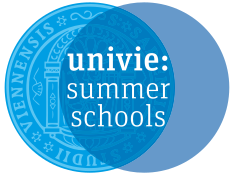
webinars 2025
The active participation in prior webinars is necessary for all students who want to receive ECTS credits. If you are not free on the day of the webinar, you can access the recorded sessions.
The webinars are free for all participants of the esss and we recommend all participants to attend.

Galina Yakshonak
Research Inteligence Manager, Elsevier
Tuesday 26th of August 3:00 – 4:00 pm CET
Cutting-edge Scientometric Tools for Research Analysis, Evaluation and Study
In this webinar, we will examine how Scopus and SciVal can be used as robust tools for scientometric analysis. The session will cover a range of metrics, from traditional metrics to impact indicators and insights, illustrating how these data facilitate the assessment of research performance at national, institutional and individual levels.
In response to the increasing demand to understand and document the broader impact of research activities, as well as to develop a more holistic approach to research evaluation, this session will highlight key impact metrics already integrated into Elsevier’s solutions. Attendees will also discover how to effectively leverage responsible AI-powered tools such as Scopus AI and ScienceDirect AI to support the study of research.

Dr. Gabriela Balladares
Consultant for Research and Analytics Solutions, Clarivate
Wednesday 3rd of September 11:00 – 12.00 am CET
Web of Science, InCites, Journal Citation Reports: Tools and Data for Bibliometric Analysis and Assessment
This webinar delves into essential Clarivate data and tools that empower bibliometric research and assessment in the era of rapidly evolving global research landscape and expanding universe of scholarly information. Web of Science offers unparalleled depth of comprehensive publication and citation data, InCites provides advanced analytics and benchmarking capabilities, and Journal Citation Reports furnishes detailed journal-level publication and citation metrics. This webinar will explore the unique features and applications of each tool, demonstrating how they collectively contribute to a robust framework for bibliometric analysis. Attendees will learn how to leverage these instruments to uncover insights into research trends, assess the impact of scholarly work, and make informed decisions that drive research excellence.

Dr. Jürgen Wastl
VP Research Evaluation and Global Challenges, Digital Science
Wednesday 27th of August 3:00-4:00 pm CET
Altmetric and Dimensions, giving you a greater view and understanding of published research!
The Altmetric Explorer is an intuitive platform that enables you to monitor the online active surrounding academic research. Using Dimensions as well, you will be able to drill down to see what grants and patents have generated published work, as well as seeing how researchers are connected.
As an attendee of ESSS, you will be able to use both the full Altmetric and Dimensions databases, to be able to track work from Universities, Funders and Publishers.
Some of the things you can achieve by using these systems include:
-
Analyse the citation corpus
-
Track influence as it happens
-
Ensure effective reputation management
-
Support your researchers
-
Inform strategic decision making
-
Report on outcomes and trends
-
Improve grant application success
You can use both the Explorer and Dimensions to run reports and analyse attention on research that matters to you, you can do this by creating custom shareable reports, exporting your saved searches to CSV files to create additional graphs, using the API to do more in-depth reporting as needed.
You will receive access to the Altmetric Explorer and Dimensions soon, which will give you access for the length of the Summer School.
As president of the ISSI (International Society for Scientometrics and Informetrics) I highly welcome the esss initiative. The advantages and opportunities arising from collaboration and participation by members of several leading European institutes are manifold. Surely, students and workers in the field will benefit greatly, not only from the contents of the courses themselves but also by participating in a network of interested parties.
I wish all involved a successful partnership.

